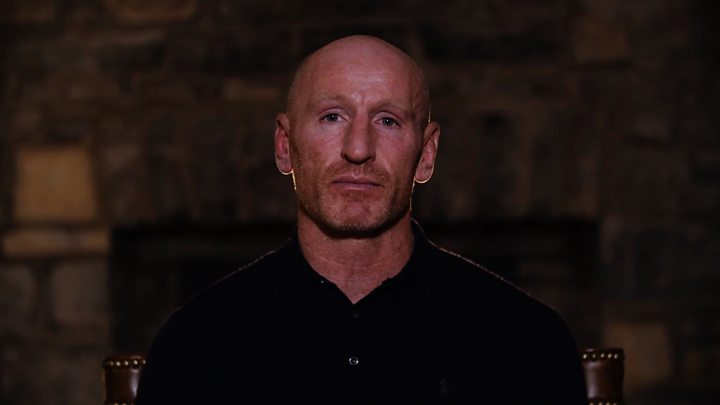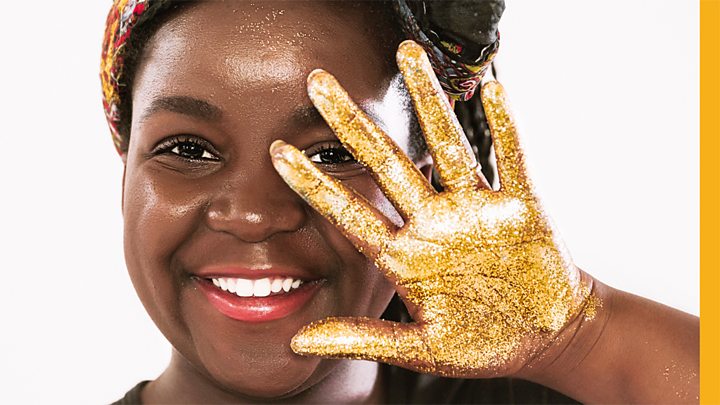Image copyright
George Westwood/Reuters
Gareth Thomas’ revelation that he has HIV will make “a whole new demographic of people” aware of the condition, says George Westwood, who has lived with HIV for 18 months.
“The stigma still does exist and I think it takes people like Gareth to battle and remove that stigma,” says the 20-year-old.
He adds that it’s “not necessarily what it’s doing to us physically” which is an issue – in fact, he says treatment for the virus is quite simple.
For George, the social stigma and the negative reaction he can get from other people are what need to change.
‘He’s an incredible role model’

Media playback is unsupported on your device
Former Wales rugby captain Gareth Thomas has spoken about the “shame” and “fear” he felt keeping his condition secret before revealing the diagnosis on Saturday night.
He’s said he now wants to show that people with HIV are misrepresented.
“Anyone who speaks publicly about living with HIV is incredible and wants to achieve the same thing,” says George.
“They want people who are living with HIV to live truthfully and authentically.
“The stigma still does exist. And I think it takes people like Gareth to battle and remove that stigma.”
Image copyright
George Westwood
George has been living with HIV for 18 months
George adds that Gareth Thomas’ profile in the sport world might help get the message across to a wider audience.
“He’s such an incredible role model, especially for young people who are into sports,” he says.
George compares it to when the ex-Wales and Lions player – also known as Alfie – came out as gay in 2009.
“He was opening up this whole new world and showing that we exist, if you will, we’re everywhere. And it’s OK.
“It’s great because it’s a whole new demographic of people who might not normally hear these stories.”
‘You see HIV as a death sentence’

Media playback is unsupported on your device
George says that, like Gareth, he’s “had some incredibly hateful things [said] about me online.”
But – like Gareth – George says the response to his diagnosis from most people has been “overwhelmingly positive – no pun intended.”
“I’m very open with my status now,” he says. “If someone wants to learn, then I’m willing to speak to them.”
George is HIV-positive but undetectable. That means he can’t pass the virus on and it can’t be detected by a blood test.
Gareth Thomas is taking part in an Ironman challenge as a way of demonstrating his physical and mental strength
“I’ve been refused two tattoos and refused a piercing just based on my HIV status,” says George, who studies in Birmingham.
“Every person living with HIV will experience negative things, but it’s just about pushing through those barriers.”
George says that’s easier said than done and discovering you have HIV “makes you feel like you’ve never felt before. It makes your mental health hit the floor.
“You can push through it, but it’s hard.”
He adds: “Unfortunately, the knowledge that we seem to have or still have is from scenarios that were back in the 1980s and 90s. I think you see HIV as a death sentence.”
Image copyright
Reuters
Gareth Thomas made 100 appearances for Wales and three appearances for the British and Irish Lions
The reality for George is that living with HIV doesn’t have much of an effect on his day-to-day life.
“In terms of the medical side, it’s not impactful at all – I think that’s why we need to speak out about it.
“Like Gareth said – like many of us say – when we come forward, it’s more to do with the social stigmas that are attached to it… not necessarily what it’s doing to us physically.”
He adds that he got support from charities which help people through diagnosis.
“And in terms of the mental health side, it was just about educating myself – and speaking out if you need help.”
Click here for help and support around HIV.
What is HIV?
- HIV stands for Human Immunodeficiency Virus – the immunodeficiency is the weakening of the immune system by the virus.
- It has been passed on between humans for many decades but was only identified in the early 1980s.
- If left untreated, infection with HIV progresses through a series of stages, leading to late-stage HIV or Aids
- HIV can be passed on through blood or semen but not passed on by spitting, sneezing, coughing, kissing or general social contact.
- There is now robust evidence to say, with confidence, that people on effective HIV treatment can’t pass on the virus.
- There are an estimated 94,100 people living with HIV in the UK, around 2,200 of them in Wales; 4,484 people were diagnosed in 2018, a 28% decline since 2015.
- 473 of the people diagnosed in 2018 were aged 15-24.
- As a result of combination prevention – condom use, HIV-prevention drug pre-exposure prophylaxis (PrEP), expanded HIV testing and of antiretroviral therapy – there has been a 39% fall in diagnosis among gay and bisexual men since 2015
- Sources: Terrence Higgins Trust and Public Health England
Follow Newsbeat on Instagram, Facebook, Twitter and YouTube.
Listen to Newsbeat live at 12:45 and 17:45 weekdays – or listen back here.
